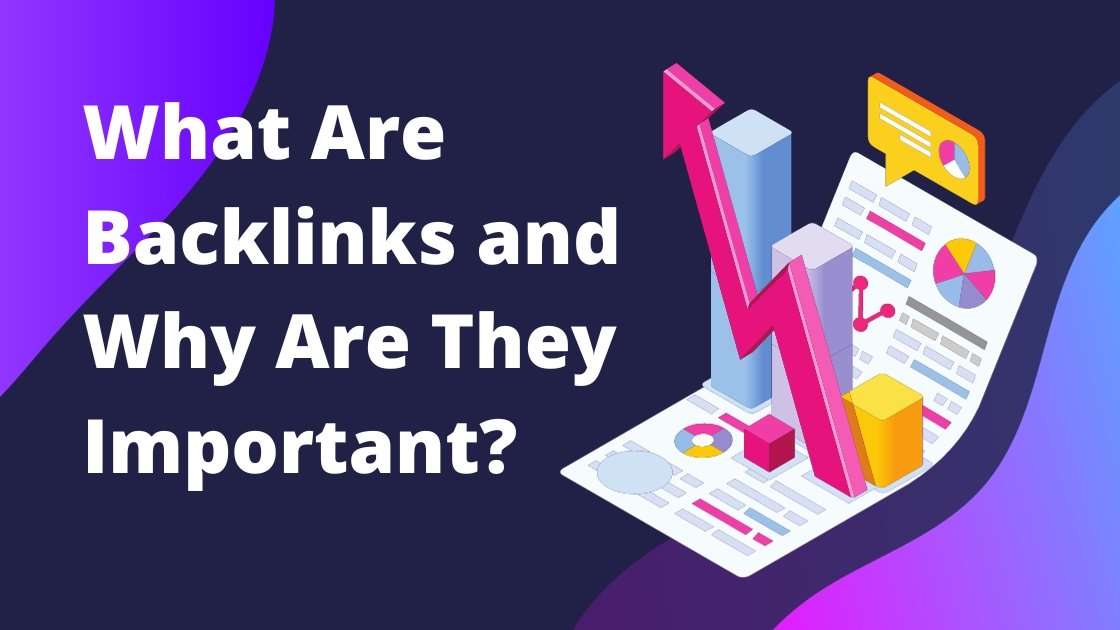In the world of digital marketing and SEO, there’s one concept that really stands out: backlinks. These are essentially just links from one website to another. But despite their simplicity, they have a huge impact on how a website is seen by search engines and how high it appears in search results. In this article, we’re going to dive deep into the world of backlinks to understand what they are and why they matter so much in the world of SEO.
What Are Backlinks?
At its core, a backlink, sometimes referred to as an inbound or incoming link, is merely a hyperlink from one website to another. These links serve as virtual pathways, guiding users from one web page to another across the vast expanse of the internet. For example, when a website A links to a page on website B, a backlink is forged from website A to website B. This fundamental concept of web connectivity is what makes the internet function as an interconnected web of information.
Why Backlinks Are Important for SEO?
Now that we understand what backlinks are, let’s take a closer look at why they are incredibly important for SEO:
1. Improved Search Engine Rankings
Search engines, especially Google, see backlinks as a vote of confidence and relevance. It’s like getting a thumbs-up from a trusted website in the online world. The more good-quality websites link to your content, the more search engines think your website is valuable and trustworthy. As a result, your website is more likely to show up higher in Google’s search results when people look for something online.
Consider this scenario: You operate a blog offering insightful advice on gardening. A prestigious gardening magazine website acknowledges the value of your content and provides a link to one of your articles about rose care. Google’s search algorithm will recognize this backlink as an endorsement, possibly leading to higher rankings when users search for information on rose care.
2. Increased Authority and Credibility
In the vast sea of websites, backlinks serve as markers of authority and credibility. When accurate websites link to your content, they signal to both search engines and users that your information is trustworthy and valuable. This endorsement can significantly boost your brand’s reputation and credibility within your niche.
3. Referral Traffic
Backlinks serve a dual purpose: they aid in SEO and generate referral traffic. Referral traffic occurs when users click on a backlink from another website to visit yours. This opens up the possibility to engage with a new audience. If your content proves to be relevant and valuable, this influx of new visitors can lead to increased traffic, conversions, and potentially new business opportunities.
Quality vs. Quantity
While it’s tempting to try and collect as many backlinks as possible, it’s crucial to remember that not all links are created equal. Search engines, like Google, really care about the links coming to your website. They want to see that these links are from websites that make sense and are trustworthy. Getting lots of links from low-quality or spammy websites can actually hurt your website’s reputation and ranking. So, it’s not just about how many links you have; it’s about having the right kind of links from the right places. A single high-quality link from a reputable website can do more for your SEO than a bunch of links from shady websites. It’s like having one trusted expert vouch for you instead of a bunch of unreliable sources. That’s why it’s essential to be mindful of where your backlinks come from and avoid anything that looks spammy or suspicious.
Earning Backlinks
Earning backlinks isn’t merely a matter of chance; it requires a strategic approach. You can create valuable content that naturally attracts links, conduct outreach to other websites in your niche, or engage in guest posting. However, always remember that creating high-quality, shareable content is often the most effective way to earn backlinks naturally.
Imagine you run an e-commerce website specializing in sustainable fashion. Your team consistently produces in-depth articles about ethical fashion practices and the impact of fast fashion on the environment. These well-researched pieces catch the eye of environmental organizations and fashion bloggers, leading them to link to your content. This organic process results in the acquisition of high-quality backlinks, strengthening your website’s authority.
Backlinks and Domain Authority
Backlinks are totally tied to a website’s domain authority. Google’s PageRank algorithm, one of the many metrics Google uses to assess the importance of web pages, takes backlinks into account. Websites with a higher number of quality backlinks tend to have higher domain authority scores. Consequently, they enjoy enhanced visibility and credibility, which positively influence their rankings in search results.
Backlink Analysis
Maintaining a healthy backlink profile requires regular monitoring and analysis. Several tools are available to assist you in this endeavor. These tools help you keep track of your backlinks, identify new backlinks as they form, and detect any harmful or spammy links that may be detrimental to your SEO efforts. It is crucial to disallow such links to maintain the integrity of your website’s backlink profile.
Conclusion
In the intricate dance of SEO, backlinks stand as the foundational pillars of authority and search engine ranking. While quantity has its place, it is the quality of backlinks that can genuinely make the difference. Focus on earning natural, high-quality backlinks, and your website will steadily climb the ranks in search engine results. For professional SEO services in Pune, designed to help you harness the power of backlinks and boost your online presence, contact us today!


